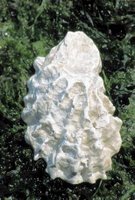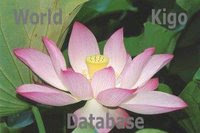:::::::::::::::::::::::::::::::::::::::::::::::::::::::::::::::::::::::::::::::::::::::::::::::::::::
Oyster, Auster (kaki)
***** Location: Japan, other areas
***** Season: All Winter
***** Category: Animal
*****************************
Explanation
Oysters are quite a delicacy here in Japan! There are quite a few kigo with this animal and its food versions. Some come in other seasons than winter.
xxxxxxxxxxxxxxxxxxxxxxxxxxxxx
kigo for late autumn
first oysters of the season, hatsugaki, hatsu kaki, 初牡蠣
This is a special treat for all oyster lovers in Japan. Eaten raw out of the shell, with a bit of lime juice sprinkled on it ... well, mjami !
:::::::::::::::::::::::::::::::::::::::::::::::::::::::::::::::::::::::::::::::::::::::::::::::::::::

http://www.dereila.ca/dereilaimages/Marine.html
....................... Oyster kigo for all winter
oyster, oysters, 牡蠣
..... Crassostrea gigas, Japanese Oyster, Giant Pacific Oyster
real oysters, magaki 真牡蠣, オイスター
"flowers of the rocks" kaki 岩花
oyster shells, kakigara 牡蠣殻
collecting oysters, kakitori 牡蠣採
cracking oysters open, hitting oysters, kaki uchi 牡蠣打
breaking oysters open, kakiwarru 牡蠣割る
peeling out the oysters, kaki muku 牡蠣むく
women who break the oysters, kakiwari me 牡蠣割女
Famous areas for Japanese oysters
"oyster field", famous oyster farms of Hiroshima, kakita 牡蠣田
long oysters from Northern Japan, nagagaki 長牡蠣
from Hokkaido, Ezogaki 蝦夷牡蠣
Itabogaki、イタボガキ, いたぼがき板甫牡蠣
from Kyushu, Ariake Sea, Sumi-no-E gaki 住之江牡蠣 住江牡蠣
..... Crassostrea ariakensis, Asian Oyster suminoekaki
Japanese food with the oysters
boiled rice with oysterss, kakimeshi 牡蠣飯
rice gruel with oysters, kaki zoosui 牡蠣雑炊
oysters marinated in vinegar, sugaki 酢牡蠣
fried on the beach, doteyaki どて焼
deep fried oysters, kaki furai 牡蠣フライ
Click HERE to see photos of the Giant Oyster
Click HERE to see photos of the real oyster, magaki
Click HERE to see photos of rice with oysters
Click HERE to see photos of fried oysters
Click for enlargement of oyster dishes !
. WASHOKU
Seafood in Winter
. WASHOKU
watarikaki 渡利牡蠣(わたりかき)Oysters from the Kihoku 紀北町
Bred in a seawater / sweetwater lake.
Mie prefecture
:::::::::::::::::::::::::::::::::::::::::::::::::::::::::::::::::::::::::::::::::::::::::::::::::::::
Eastern Oyster (Crassostrea virginica)
What is an oyster?
An oyster is a shellfish with 2 rough white shells that hook together at one end. The oyster has strong muscles which hold the shell shut. It is very difficult for predators (like people) to pry the shell open. An Eastern oyster is usually 2 to 6 inches long. The inside of the shell has a purple mark where the oyster was attached. The shell is sharp and can cut you!
How do oysters eat?
Oysters are filter-feeders. They suck in water and filter out the plankton and detritus to swallow. Then they spit the water back out. (Detritus is dead plant and animal matter.) They also accidentally filter out and collect any poisons that might be in the water. This cleans the water, but is not so good for the oysters. Because these poisons are more likely to be in coastal waters in the summer months, it is usually not safe to eat oysters in the summer time. Oysters have gills and get their oxygen from the water.
What about pearls?
The oyster’s mantle (skin) makes both an outer white crusty shell, and a smooth inner shell. The smooth inner part is called "nacre" or "Mother of Pearl." Sometimes a bit of sand gets inside the oyster’s shell. This is very irritating to the oyster, like getting an eyelash in your eye. So the oyster covers this bit of dirt with shiny smooth Mother of Pearl. It keeps covering the dirt and rolling it around until it doesn’t cause any more irritation. This makes a pearl.
The oysters that people eat in north Florida (Eastern oysters) hardly ever make pretty pearls. But there are other kinds of oysters, clams, mussels, conchs, whelks, and even abalone that do make nice pearls. We think of pearls as being round and white, but they are often yellow or black, and many other colors and shapes.
http://pelotes.jea.com/eastern.htm
*****************************
Worldwide use
Chesapeake Bay, USA
American oyster (Crassostrea virginica)
The American Oyster, also called the Eastern Oyster and Virginia Oyster, is native to the East Coast of the United States. The Chesapeake Oyster is a subspecies of the American Oyster. It is a hard shellfish, typically 2 - 6 inches in length, growing about one inch a year. It is a filter feeder and peforms an important ecological function in cleaning the Chesapeake Bay.
The oysters have been all but wiped out by pollution, disease, and overharvesting. Skipjacks are no longer economically viable and there is talk of declaring the Chesapeake oyster an endangered species.
Chesapeake Bay Saijiki : Winter
*****************************
Things found on the way
Grandfather Oyster and Shigebo
カキじいさんとしげぼう

On the English translation of this book "Grandfather Oyster and Shigebo"
HATAKEYAMA Shigeatsu
I am an oyster farmer on Kesennuma Bay ln northern Japan.
Oysterfarms, no matter where in the world they are,are always located in brackish areas near rivermouths.
This is because forests are closely linked with the development of phytoplankton, which is eaten by the oysters. Dr.MATSUNAGA Katsuhiko, a Japanese researcher, discovered that phytoplankton will not increase in the absence of the fulvic-acid Fe that is produced within the forest humus.
However, people live in the areas along the river.This is the cause of many things that interfere with biological development-weirs , dams, domestic and industrial waste water, pesticides, destruction of the forests, and so on.
Thirty years ago, Kesennuma Bay was in a moribund state, ruined by redtide. Wishing to restore the polluted sea to its original blue state, "The Sea is longing for the Forest" movement was started in 1989. Fishermen planted trees such as beech and oak in the mountains, and invited children living along the river to visit the sea, providing environmental education to them.
After twenty years, the river feeding into Kesennuma Bay has the most salmon climbing it of all the rivers in the area, and the sea has returned to its original blue color. This is the result of people all along the river understanding that the forests and the sea form a slngle system. Currently,every prefecture in Japan with a coastline has fishermen conducting reforestation.
Kaki-no-Mori-BOOKS (Mizuyama oyster Farm)
source : mizuyama-oyster-farm
. Japan after the BIG earthquake March 11, 2011 .
:::::::::::::::::::::::::::::::::::::::::::::::::::::::::::::::::::::::::::::::::::::::::::::::::::::
Published Research on the Asian Oyster, Crassostrea ariakensis
:::::::::::::::::::::::::::::::::::::::::::::::::::::::::::::::::::::::::::::::::::::::::::::::::::::
Suminoe at the mouth of river Rokkaku in the Ariake Sea
佐賀県有明(ありあけ)海湾奥部、六角(ろっかく)川河口
This is Suminoe at Osaka Bay:
住の江の岸による波よるさへや
夢の通ひ路人目よくらむ
Sumi no e no Kishi ni yoru nami Yoru sae ya
Yume no kayoi ji Hito me yoku ran
The waves are gathered
On the shore of Sumi Bay,
And in the gathered night,
When in dreams I go to you,
I hide from people's eyes.
18 - Fujiwara no Toshiyuki 藤原敏行朝臣
Tr. Virginia University Team
Like waves reaching Suminoe River,
He doesn't come to see me, even in a dream at night.
Tr. ヒデヨナ
. Ogura Hyakunin Isshu Poems 小倉百人一首 .
*****************************
HAIKU
初牡蠣やお国訛りの隣客
hatsugaki ya okuni narmai no tonarikyaku
first oysters of the season !
the guest next to me
speaks his home dialect
(Tr. Gabi Greve)
ソセイ
http://members.jcom.home.ne.jp/yanma46/14401.html
xxxxxxxxxxxxxxxxxxxxxxxxxxxxx
oyster barbecue
a mother of six watches
the pile of shells
Jane Reichhold
A Dictionary of Haiku
Jane places the oysters as a kigo for spring. There are no reasons given for this deviation from the traditional Japanese placement and no special area she might be referring to.
xxxxxxxxxxxxxxxxxxxxxxxxxxxxx
oysters in my bed
boats above me
watch out, the dredge!
~Amora Johnson, US
Chesapeake Bay Saijiki : Winter
xxxxxxxxxxxxxxxxxxxxxxxxxxxxx
牡蠣船にもちこむわかればなしかな
kakibune ni mochikomu wakarebanashi kana
talk of separation -
brought all the way to the
oyster ship
(Tr. Gabi Greve)
久保田万太郎 Kubota Mantaroo
あたらしき声出すための酢牡蠣かな
能村登四郎
もろもろのしがらみ付けて太る牡蛎
中嶋秀子
占領地区の牡蠣を将軍に奉る
西東三鬼
友死すや啜りて牡蠣のうすき肉
小澤實
Quoted from the Gendai Haiku Database 現代俳句データベース
xxxxxxxxxxxxxxxxxxxxxxxxxxxxx
collecting oysters
in his childhood
was a hobby-
he remembers
the past while on a visit
to the same sea beach
Aju Mukhopadhyay, India, 2006
xxxxxxxxxxxxxxxxxxxxxxxxxxxxx
oysters after concert --
the whole choir vomits
in the plane
Tomislav Maretic, Croatia, 2006
xxxxxxxxxxxxxxxxxxxxxxxxxxxxx
fresh oysters ...
she coats her tongue
with cheese
Ella Wagemakers
.. .. ..
I can't let this one by. Not when I crew on board a Chesapeake oyster boat!
The proper way to eat an oyster is with hot sauce right out of the shell.
"Hard-alee!"
On his knees culling oysters
he doesn't have to duck.
M. Kei, USA
Chesapeake Bay Saijiki
*****************************
Related words
***** Pearls, Mother of Pearl (shinju 真珠)
Non-seasonal haiku topic
In Japan, a pearl neclace is the only jewellery allowed for a funeral ceremony.
Pearl Museum, Ise Shima, Japan
MOTHER-OF-PEARL or nacre
the iridescent substance that forms the lining of the shells of some fresh-water and some salt-water mollusks. Like the pearl it is a secretion of the mantle, composed of alternate layers of calcium carbonate and conchiolin.
Among the chief sources are the pearl oyster, found in warm and tropical seas, chiefly in Asia; freshwater pearl mussels, which live in many rivers of the United States, Europe, and Asia; and the abalone of California, Japan, and other Pacific regions.
http://www.encyclopedia.com/html/m/motherpe.asp
Click HERE to see some Pearl Jewellery
:::::::::::::::::::::::::::::::::::::::::::::::::::::::::::::::::::::::::::::::::::::::::::::::::::::
WASHOKU : FISH and SEAFOOD SAIJIKI
[ . BACK to WORLDKIGO TOP . ]
[ . BACK to DARUMA MUSEUM TOP . ]
:::::::::::::::::::::::::::::::::::::::::::::::::::::::::::::::::::::::::::::::::::::::::::::::::::::







7 comments:
talk of separation -
brought all the way to the
oyster ship
by Kubota Mantarou
Question?
[all the way] why do you place this phrase here ?
sakuo.
fresh oysters ...
she coats her tongue
with cheese
Ella Wagemakers
coral worlds ~
oysters hide from
homosapiens
kakibune ni/mochikomu wakare-/banashi kana
into the oyster boat
was brought the talk of ending
our love affair
Kubota Mantaro
Tr. Susumu Takiguchi
Thanks for visiting, Jan!
Your oyster page is great!
http://two2travelcalifornia.blogspot.com/2008/04/gold-beyond-golden-gate.html
GABI
牡蠣よりは海苔をば老の売りもせで
kaki yori wa nori o ba oi no uri mo sede
rather than oysters
it's dried seaweed one should sell
when one is old
Matsuo Basho
Kakigarachoo 蛎殻町 Kakigaracho, Kakigara district
Chuo ward, 蛎殻町一丁目 - 蛎殻町二丁目 first and second sub-district
Nihonbashi Kakigaracho 日本橋蛎殻町
https://edoflourishing.blogspot.com/2019/06/kakigaracho-kamimakicho-chuo.html
.
Post a Comment